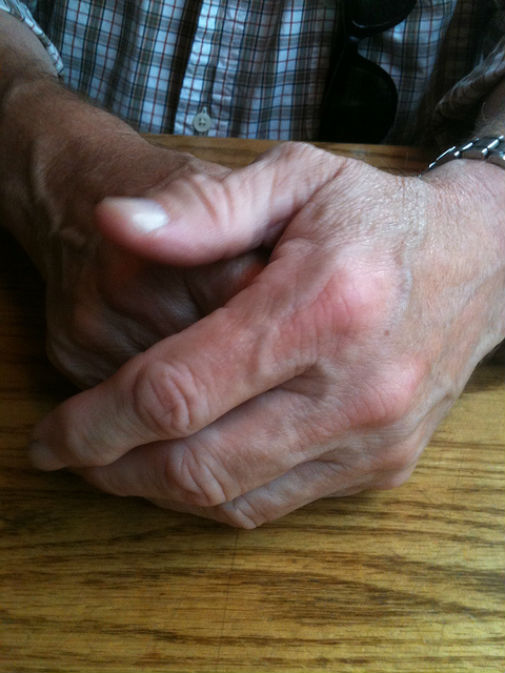Research challenges use of off-label drug to treat osteoarthritis
Posted on 26 February 2018

The study was hosted at the York Trials Unit (YTU), University of York.
The HERO Trial (Hydroxychloroquine Effectiveness in Reducing Symptoms of Hand Osteoarthritis Trial) shows there was no benefit in taking hydroxychloroquine to control debilitating pain when compared to a placebo.
The first-line treatment for hand osteoarthritis - paracetamol, non-steroidal anti-inflammatory drugs or opioids - is often not effective and some patients experience adverse reactions. Doctors have used hydroxychloroquine as an off-label alternative when first-line treatments are ineffective.
Authorised
Prescription drugs are licensed for certain conditions: off-label use means doctors are using them to treat illnesses outside of that designated or authorised list.
It is not clear how often doctors use hydroxychloroquine off-label, although it is believed to be a common practice.
The study was hosted at the York Trials Unit (YTU), University of York, working in conjunction with the Chief Investigator, Professor Philip Conaghan, and his team at the Leeds Institute of Rheumatic and Musculoskeletal Medicine, University of Leeds. YTU were involved in the design, running and reporting of this study.
The study is published in the journal Annals of Internal Medicine.
Dr Puvan Tharmanathan, from the YTU , said: “This project involved close collaboration between universities in Yorkshire to answer an important question on treatment choices for patients with hand osteoarthritis using rigorous research methods.”
“The finding that hydroxychloroquine is not effective is important both in relation to not exposing patients to additional treatments and further understanding the underlying cause of hand osteoarthritis in the hope of finding new treatments.”
Osteoarthritis of the hand is a painful and disabling condition which tends to affect people as they get older. It can stop people from carrying out everyday activities – and can limit their quality of life.
The HERO Trial, funded by Arthritis Research UK, estimated that up to 31 per cent of people aged over 70 suffer from the condition.
Pain
The study involved 248 patients at 13 NHS hospitals in England: all had the condition for at least 5 years and had changes to the joints in their hands consistent with osteoarthritis.
The participants all reported moderate to severe pain on at least half of the days in the previous three months to the study commencing.
The study found that patients initially reported a small reduction in the severity of pain before the improvement plateaued. However, that change was seen in both the group receiving the medication and the group taking the placebo (i.e. dummy capsule that contained no medicine).
Measurements of grip strength and the structural damage existing in patients’ joints were also similar for both groups.
Figures from Arthritis Research UK show that 8.75 million people over the age of 45 have sought treatment for all types of osteoarthritis. One third have to stop working or reduce their working hours because of the pain of the condition.
According to the charity, hand osteoarthritis is more commonly seen in people whose occupations required increased manual dexterity.
Limiting
Dr Natalie Carter, head of research liaison and evaluation at Arthritis Research UK, said: “While this drug is known to be effective for some forms of inflammatory arthritis, such as rheumatoid arthritis, this study does not back up its use for hand osteoarthritis.
"Hand osteoarthritis can have a huge impact on a person’s life, limiting their ability to live independently and carry out everyday tasks such as dress, wash and cook for themselves.
“It is vital that we invest in research to improve the treatment options available to people with this condition. Anyone concerned about the effectiveness of their treatment should seek advice from their doctor.”
Explore more news
.jpg)
University of York awarded £1.1 million to lead the first stage of UK’s first comprehensive study on devolution and social security
Thursday 25 April 2024

More hybrid and nature-based solutions are urgently need to protect coastal communities from climate change
Wednesday 24 April 2024

New butterfly species created 200,000 years ago by two species interbreeding
Thursday 18 April 2024

Children in the North at greater risk of entering care
Wednesday 17 April 2024

Boreal forest and tundra regions worst hit over next 500 years of climate change, study shows
Monday 8 April 2024
Media enquiries
About this research
The study was hosted at the York Trials Unit (YTU), University of York, and involved Dr Puvan Tharmanathan. It was funded by Arthritis Research UK.
